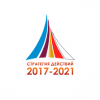• Brief description of the project
Aquaponics has recently become a sustainable and efficient agricultural system. It combines aquaculture and hydroponics in a symbiotic manner, allowing farmers to grow fish and plants in an integrated environment with minimal water and feed requirements. With its ability to produce high-quality food, aquaponics has the potential to revolutionize food production.
The International Innovation Center of the Aral Sea basin (IICAS) has developed a project proposal for the “Creation of a smart aquaponic system.” The project plans to demonstrate and disseminate knowledge and experience in creating a smart aquaponic system as a much more efficient and profitable alternative for the production of fish and agricultural products than catching it and growing it in the natural environment and farming in open areas where water is consumed irrevocably into the environment. The project will demonstrate to the population how to produce the necessary food and get high profits from it, without damaging the environment. This initiative is fully consistent with the strategy for overcoming the Aral Sea crisis and with the tasks set by the Strategy of Action for the five priority areas of development of the Republic of Uzbekistan, the main goal of which is to create the conditions necessary to meet the ever-growing needs of the population, provide reliable and timely food, and integrated use water resources in conditions of increasing scarcity and global climate change.
The project will be implemented in close cooperation with Karakalpak-Balyk LLC with funding from UNDP Karakalpakstan. The construction of a smart aquaponic system is planned on the territory of the Samanbay experimental site at the International Research Center, located in the Nukus region of the Republic of Kazakhstan, Samanbay VSS. As part of the project, a reliable RAS system (recirculated water supply installation) will be built for breeding fish and growing vegetables in a hydroponic module. The entire system will be equipped with the necessary remote control sensors and automated. To disseminate knowledge about this innovative system, the involved specialists will prepare training and methodological materials specifically designed for farmers and youth. With these materials, they can learn how to effectively operate a smart aquaponics system, thereby improving their farming and fish farming practices in RAS systems.
The project proposal is proposed for consideration within the framework of the Joint Program of UNDP, UNICEF and FAO “Empowering youth on the path to a bright future through green and innovative development of the Aral Sea region” for joint implementation or provision of financial assistance in its implementation.
1.Goal
Aquaponics is a sustainable form of farming that combines aquaculture and hydroponics. It involves raising fish and plants in the same environment, using water from pools to provide nutrients to the plants. Creating a smart aquaponics system is an important step towards optimizing production by automating processes such as water filtration, controlling pH, temperature, humidity, dissolved oxygen levels and nutrient concentrations to ensure optimal conditions for both fish and plants.
Establishing an aquaponics demonstration and training facility will help farmers understand how the system works and how they can be used on their farms. With this knowledge, farmers will be able to create their own smart aquaponics systems that will help them produce more food with fewer resources while protecting the environment.
In order to achieve the goals set in the project, joint visits to the sites of potential farmers and organizations were carried out, where the main criteria were the availability of water and experienced specialists (ichtheologists, agronomists and IT specialists).
Considering the uniqueness of the planned smart project (a similar project has not yet been launched in Uzbekistan), the International Innovation Center of the Aral Sea region was the most suitable. To create this pilot project. The management of the IICAS, in turn, expressed its readiness to cooperate with UNDP, and provides a plot of 300 m2 in size (21 m in length and 14 m in width), which can be created by any farmer on a small part of his farm. IICAS has experienced ichtheologists, IT specialists and agronomists who will jointly promote the project and train farmers in aquaponics and RAS skills.
In order to check the quality of the water, a general physical and chemical analysis of a nearby water tank of 98 m3 (Appendix 1), the source of which is water from the Dustlik main canal, was carried out; the results of the analysis confirmed the admissibility of breeding and growing fish in a recirculation system.
In the constructed RAS system it is planned to produce more than 5 tons in one season and to grow vegetables (strawberries, lettuce, etc.) agricultural crops, and this will be a stable source of income. Thus, having developed the RAS model, we will focus on familiarizing ourselves with this system among entrepreneurs (training manual, seminars) and local authorities.
Also, a new research program for the Republic will be carried out on the created base. Students, master’s and doctoral students will be invited to conduct research, with a minimum of one thesis and one dissertation.
To implement the project, a small plot was chosen at the Samanbay experimental site, located in the Nukus region of the Republic of Kazakhstan, Samanbay VSG. A smart aquaponics system will be built on the site on an area of 300 m2 with a pool volume of 100 m3. Thus, it is planned to breed carp in a RAS and grow strawberries and lettuce in a hydroponic module, and this will be a stable source of income.
Improving water use efficiency is critical for sustainable agricultural production, especially in developing countries such as Uzbekistan. The use of these technologies may serve as one of the possible options for adapting sustainable agriculture in the Republic of Karakalpakstan.
2.Methodology and technology
Aquaponics is one of the combined symbiotic high-tech methods of agricultural work, producing plant-based food products on a hydroponic basis in combination with aquaculture, the technological waters of which provide plants with organic secretions as natural fertilizers. The first prototypes of aquaponic modules appeared back in 1975; water from fish tanks was supplied to trays with plants. The idea was this: wastewater from fish tanks would be a source of nutrients for plants. Over the course of a month, there was a deterioration in the condition of the plants due to a lack of nutrients. The reason was that the level of nitrogen in the water was insufficient for normal plant nutrition. This showed scientists that a strict balance is required between all components of the symbiotic system.
The project will use RAS (recirculating water supply) techniques. The construction of the RAS will be carried out in close cooperation with Karakalpak Balik Sanoat LLC; they will provide technology with a tank volume of 100 m3 on an area of 300 m2, biological and mechanical filters, recirculation pumps, heating boilers and all the necessary components for the full launch of the RAS.
3.Scope of work
The project will be implemented in close cooperation with the head of the social services monitoring and evaluation component and the project team to ensure the quality of activities. The five-month project will be implemented on the territory of the Samanbay experimental site at the IICAS, Nukus district, Samanbay VSG. The project also includes disseminating knowledge of aquaponics to local farmers and youth.
4.Expected results
• The created RAS will be the basis for further research on optimizing technology, increasing productivity and expanding the list of breeding objects;
• A training manual and practical exercises during the seminars will be a mechanism for promoting intensive aquaponics technologies, increasing knowledge on new practices of rational agribusiness;
• The created RAS will be the basis for research;
• The data obtained will be used to develop a program for the development of RAS technologies in the country;
• Conducting practical seminars to familiarize yourself with the presented technology with the participation of potential farmers who can adopt the proposed practice;
• Growing plants in very small areas and tending to grow rapidly;
![]()

















